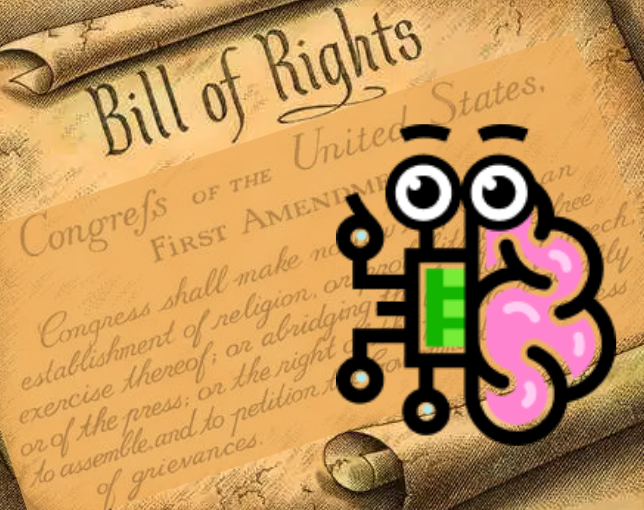BrainTool PKM Bill of Rights
I’ve written previously about the philosophy behind BrainTool’s approach to transparency, data management and storage format, but I’ve been thinking that it’d be worth formulating a specific list of rights that BT grants its users. I like the alliteration of “BrainTool Bill of Rights”, but I think it’s a set of rights and assurances that other tools managing user data should aspire to.
|
I'd love to see these evolve into a widely acknowledged Personal Knowledge Management (PKM)/Productivity tool bill of rights. What do you think? (Spoiler: It's your data and BT is just one tool you've empowered to help you manage it.) |

|
Tool User Rights:
1) You have the right to full and exclusive access to your data.
It’s your data! No one likes large corporations owning their personal data, using it for model training or marketing purposes, and exposing it to security risks. Too many tools today offer a free service but earn revenue by processing and selling the associated data.
BrainTool is a Bring Your Own Data (BYOD) tool with no server or database.
2) You have the right to re-use your data across tools.
Your data should be accessible from different tools insofar as the same things are being worked with. Tools should be able to read and edit Appointments, Tasks, Tags, Notes, Lists, Journal entries etc created in other tools.
BrainTool uses org-mode syntax which means you can access your BT bookmarks, notes and to-dos in other tools* or any text editor.
3) You have the right to inspect the code and logic of tools accessing your data.
There needs to be a way users can verify the operations they are trusting tools to perform on their behalf.
BrainTool is source available and statically hosted in public on github.
4) You have the right to human-readable data formats.
Your data should be interpretable outside the context of a specific tool.
BrainTool uses readable plain text ASCII which can be viewed or edited in any text editor.
5) You have the right to structure your data how you see fit.
Insofar as your data has hierarchy, tagging, ordering, sorting and linking elements you should be able to define that structure.
Your BrainTool topic tree can be take any shape with infinite topic nesting.
BrainTool Grants the following Additional Rights
6) You have the right to a fully functional extended evaluation period.
You need to be able to climb the learning curve for a tool to assess it’s utility for your use case - before having to commit to a purchase.
BrainTool is usable free forever, cheap to support and free for friends. There are no limits on use. After 30 days some features and preferences are restricted to supporters.
7) You have the right to a one-time purchase
In today’s subscription-for-everything world, opaque recurring costs are a source of user frustration.
BrainTool offers a one-time purchase in addition to recurring supporter subscriptions.
Tool Maker Aspirations
In addition to these basic rights tool makers should commit to the following aspirations:
a) Tools should solve real world day to day problems.
BrainTool solves your biggest browser headaches: the “too-many-tabs problem” and the “how do I save and re-find my stuff problem”.
b) Tools should be easy, pleasing and fun to use.
Easier said than done, but always aspirational!
c) Tools should continually evolve based on user feedback.
Feedback loops fuel improvement. BT has an active and vocal discussion group.
d) Tools should be information dense.
You have lots of sites to store and tabs to wrangle. BT fits a lot in a small space.
e) Tools should be easy to pick up but reward expertise.
BT’s incremental search and keyboard commands will make you more efficient over time.
f) Tools should minimize distractions.
A sparse workspace is a productive workspace. By making it easy to save, retrieve, and control tabs en masse, BrainTool encourages filing things away, reducing browser clutter and enhancing focus.
15 Aug 2024 - Written by Tony
Share on: